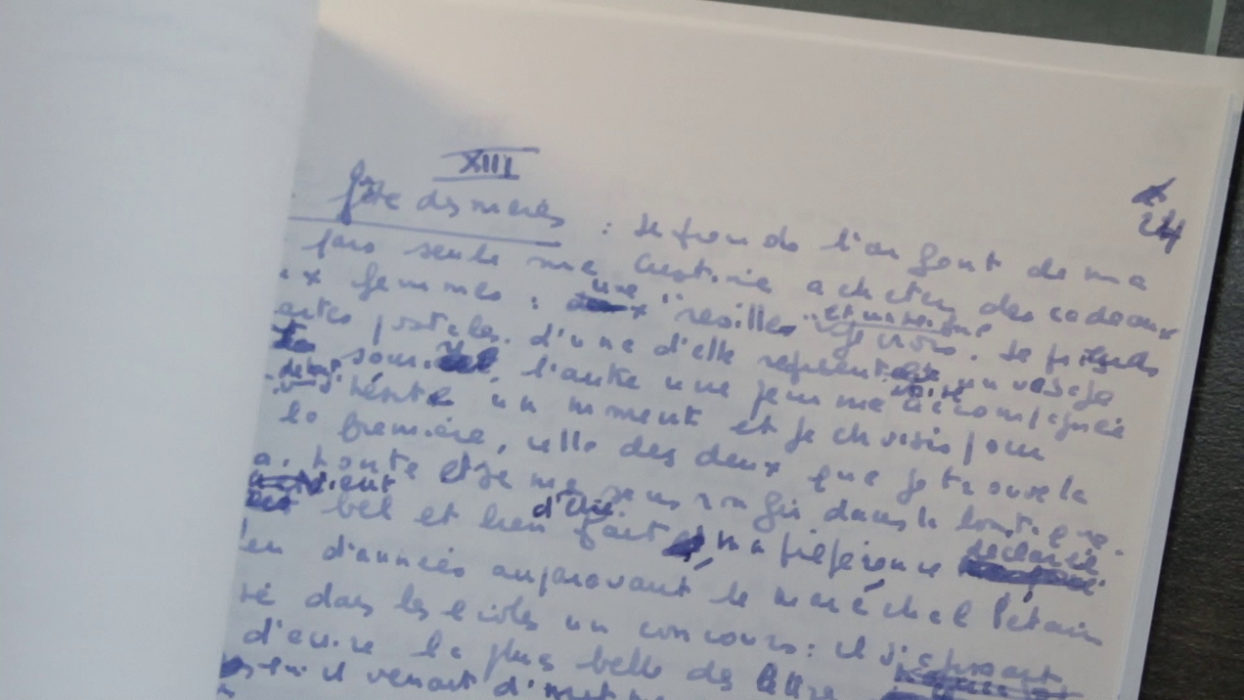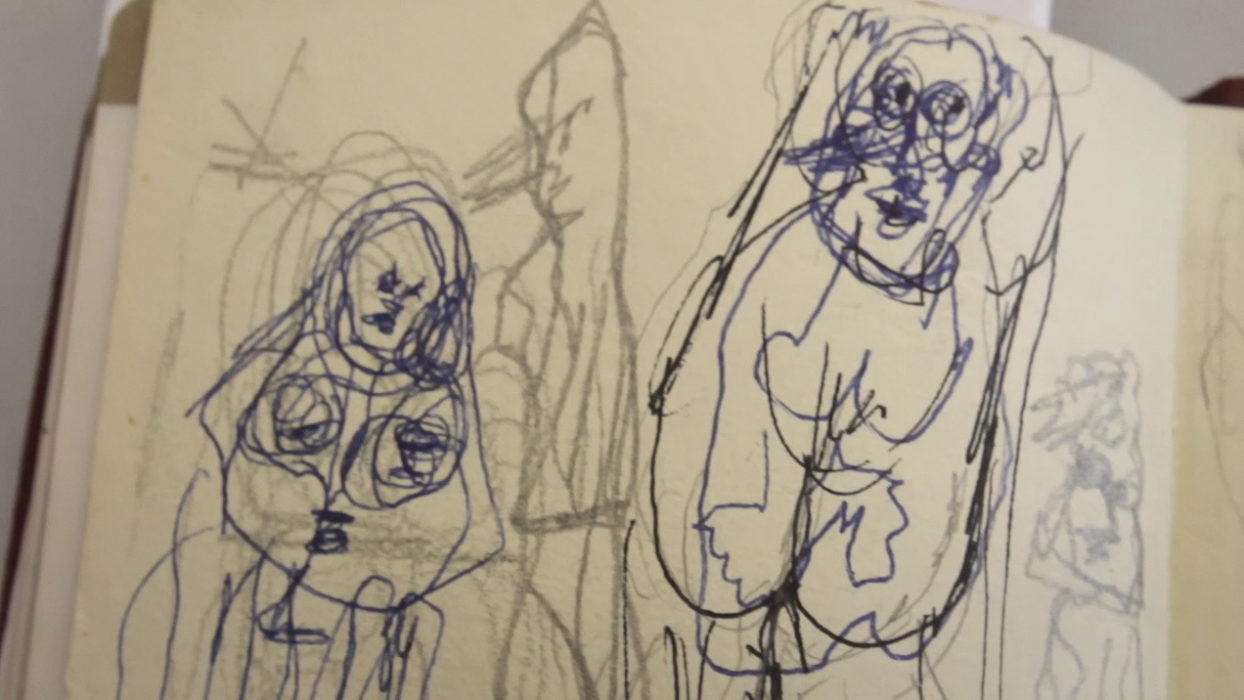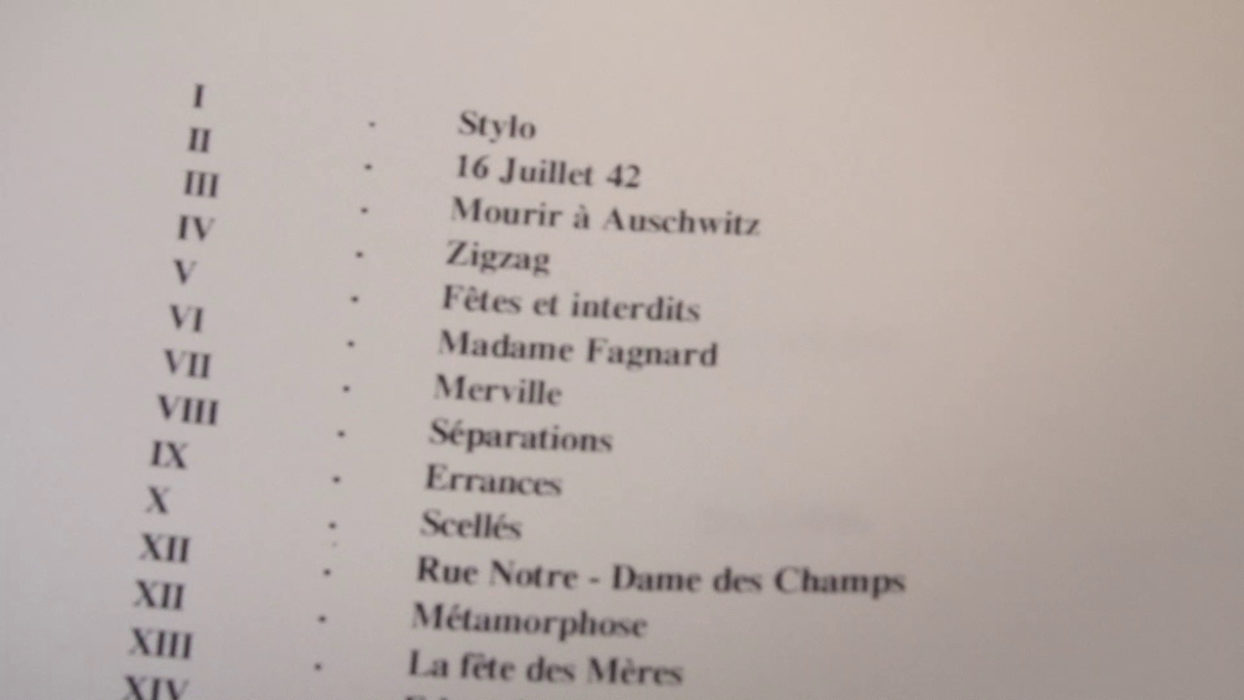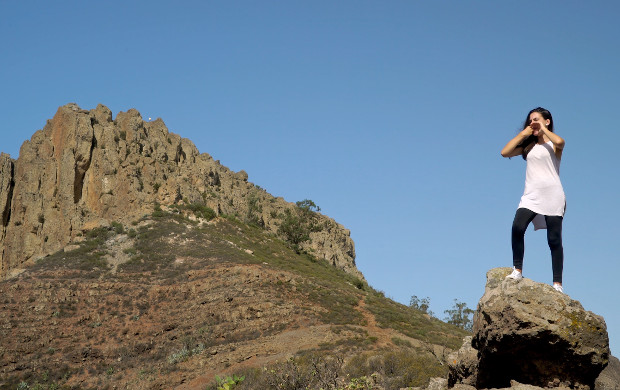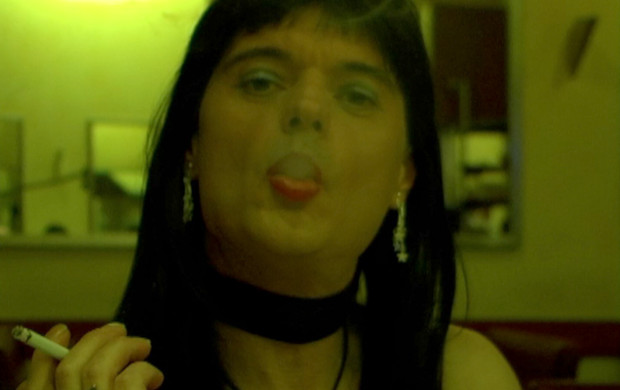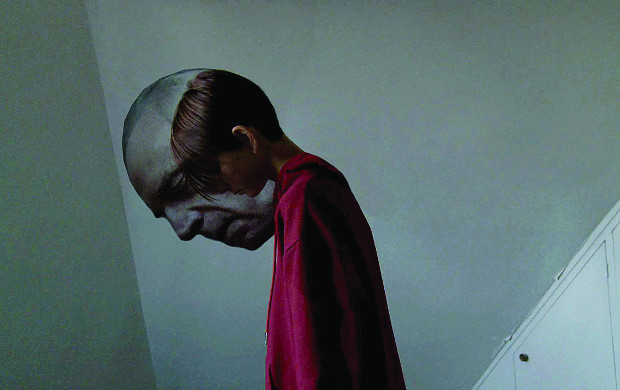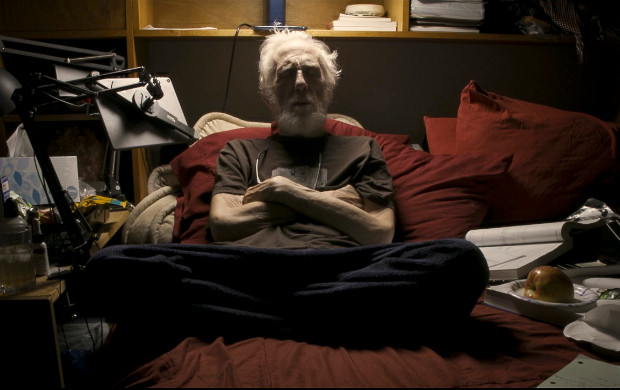Un souvenir d’archives
- 2021
- France
- 45 min
Archivist and researcher Isabelle Ullern investigates the official archives of philosopher Sarah Kofman. “I become her ventriloquist”, she says. Digging into the archives, she brings back the memories of Sarah, who committed suicide in October 1994 — her works as a philosopher and her past as a hidden child of the Holocaust… For the duration of the film, Isabelle embodies Sarah.
We don’t see much of the reading room at Ardenne Abbey, as Christophe Bisson’s camera is searching for minute details. It follows the painstaking research of archivist Isabelle Ullern. The camera acts as a magnifying glass, examining up close the elements she discovers. It follows the patient hands that are exploring the material released from the finally opened archive. Vision is blurred, trembling, but alert so that crossed-out words, deletions, annotations and scribblings come into focus. The film is a relay: the filmmaker portrays a woman at work, who is herself exploring the steps in the work of another woman, the philosopher Sarah Kofman. This dive into the imperceptible also looks at the circumstances that preceded her final book. The research work requires an insatiable curiosity bent on finding the treasure that a crossing-out or a word in the margin could contain. In a tense silence, Isabelle Ullern confides her impressions and, absorbed, confesses to the dazzling intensities that her research brings. Her progress invites us to track the detail and let an address book and administrative documents tell us about the precious nature of the “almost-nothing”. The film surrenders to a bewitching voyeurism as the documents push it into a gentle slide towards a fascinating portrait of Sarah Kofman. This apparently fruitless research is what archives memory and tells the story of a woman between lines that are lifted up by another woman.
Clémence Arrivé
- Screenplay : Christophe Bisson avec la participation d'Isabelle Ullern
- Cinematography, sound : Christophe Bisson
- Editing : Claire Atherton
